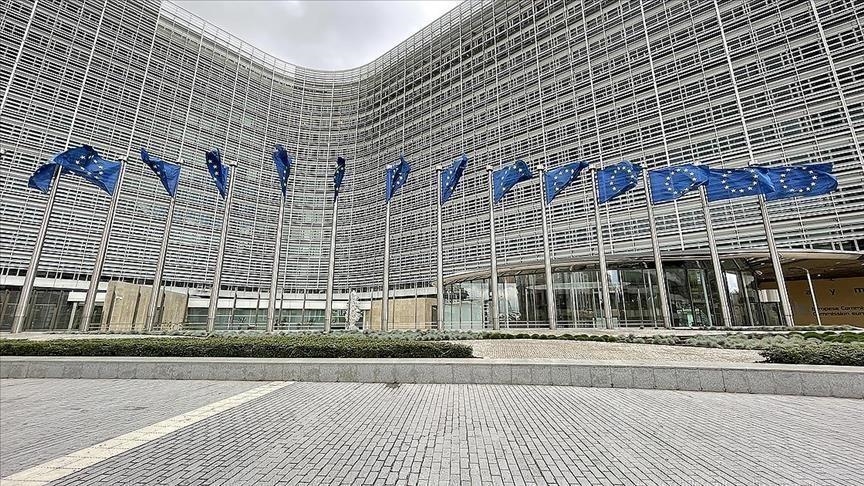EU sends formal letter to Greece, asks for information on wiretapping scandal
European Commission requests information after reports revealed that Israeli-made spyware used in attempt to spy on opposition politicians, journalists

BRUSSELS
The European Commission has officially asked for information about the wiretapping scandal from the Greek government, Anadolu Agency learned on Thursday.
“On July 29, the (European) Commission sent a letter to the Greek ambassador to the EU, asking for information on the ongoing investigations regarding the use of Predator in Greece,” an EU official told Anadolu Agency on condition of anonymity.
The remarks refer to the Greek surveillance scandal that has severely undermined the position of Greek Prime Minister Kyriakos Mitsotakis after he admitted on Monday that the National Intelligence Service (EYP) wiretapped opposition leader and former EU lawmaker Nikos Androulakis.
The European Commission reacted early on to the unfolding events since the EU executive body asked for details on the same day as the EYP’s director, Andreas Kontoleon, and the prime minister's secretary general, Grigoris Dimitriadis, resigned following the former’s confession at a parliamentary committee that his agency had been spying on journalist Thanasis Koukakis.
EU Rule of Law Report
The EU executive body has already been aware of reports from the journalist protection platform of the Council of Europe (CoE) – a non-EU related international organization – that the Greek intelligence agency followed journalists and used the Israeli-made tracking software.
“Attacks and threats against journalists persist and journalists’ professional environment has deteriorated further,” read the European Commission’s 2022 Rule of Law Report, which was published only two weeks before the scandal broke out.
“It was moreover reported that one Greek journalist has been targeted by spyware surveillance software equivalent to Pegasus (Predator), while another journalist was allegedly monitored by” the Greek intelligence, the document said, referring to the alerts of the CoE journalist platform.
However, as quoted in the EU Rule of Law Report, the Greek government denied its involvement in the surveillance of journalists in its response to the alert of CoE.
“The Greek authorities do not use the specific software described in these complaints. The Greek State does not trade with any of the companies that manufacture or market such software,” it said in a letter dated June 16.
EU calls for investigation
Anitta Hipper, the European Commission’s spokesperson on home affairs, said earlier this week that the EU executive body expects Greek authorities to “thoroughly” examine allegations stemming from the spyware scandal.
“Any attempt by national security services to illegally access data of citizens, including journalists and political opponents, if confirmed, is unacceptable,” she stated.
In principle, it is the competence of EU member states to investigate breaches related to the functioning of national security services.
However, countries are also bound by EU data protection law and the EU court’s case law on fundamental rights.
Koukakis, the journalist who was also under surveillance, will appear later this month in front of the EU Parliament’s PEGA committee probing the use of spyware by EU member states, while opposition leader Androulakis is also expected to testify later.
Anadolu Agency website contains only a portion of the news stories offered to subscribers in the AA News Broadcasting System (HAS), and in summarized form. Please contact us for subscription options.







